About the project, acknowledgements and collaborations
Science, as well as other areas of knowledge, is a reflection of society and that is why the scientific communications and, science itself, presents a ´Western, white, ableist and patriarchal´ approach. The Ball World project was created in November 2022 with the intention to get far away from this approach and build a safe, inclusive and diverse space for the scientific community and the general public. The project was funded by the Royal Society of Chemistry (RSC) and its Inclusion and Diversity Fund.
The aim of The Ball World was to create a data base where people could check for the biography and scientific contributions of scientists that are not well known by the general public and/or the scientific community. We called them invisibilised scientists. What do they have in common? They have been discriminated against because of their gender, race/ethnicity, sexual orientation, disabilities, and/or others. What we also wanted with this project was to unify and collect the information out there in just one website and one that it is easy to use and accessible for everyone.
Why is it called The Ball World? The project is named after the African American chemist and scientist Alice Ball, who developed an effective treatment for leprosy during the 20 th century. Many people were cure thanks to the discovery until the antibiotics. However, one of her colleagues stole her findings and publish it without acknowledging her or credited her work. It was not until the 70s that her work was not found. You can find her profile on the map. Moreover, her name helped us to come up with the idea for the website design, a world ball where you could find the profiles just clicking on the country. They are classified by nationality and by the group they belong (Women, Others, Race, LGBTQI+, and Diversity (World)).
Unfortunately, Alice´s case is not the only one and there are many other scientists which contributions have been stolen or that they are not known by society. There are others that you may known their names and what they have done, but we want also to capture their reality and the difficulties they have to go through during their lives (such as Marie Curie or Alan Turing). With this project, we want to put on the map their stories and to make pretty clear that science is not just made by white, cisgender, western men. Science, as well as society, is diverse, we just need to make it more inclusive. We hope this project helps to create a better world.
P.S.: As the project is originally funded by the Royal Society of Chemistry, most of the profiles you will find on the map are scientists that have work in the chemical science field. We keep working to expand The Ball World and to include scientists from different fields.
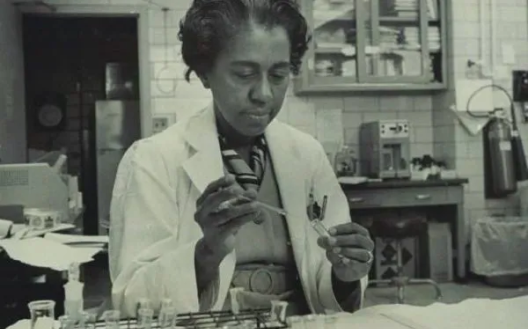
Call to action to send new profiles
Contact
Acknoledgment
Companies and Organisations
The RSC with their Inclusion and Diversity Fund is ´providing financial support for products, activities and research projects that further inclusion and diversity in the chemical sciences´.
The National Hydrogen and Fuel Cell Technology Testing Centre works to drive forward the scientific and technological research into hydrogen and fuel cell technologies.
CodiCoop is a Catalonian cooperative that works on the development and design of web pages, web apps, dashboards, etc. Their principles: life in the centre, equity, ethical projects, support of social projects, and non-profit.

PDICIENCIA is a science outreach project that provides scientific knowledge from an inclusive perspective. Its team is formed by people with different intellectual and physical abilities.
Collaborators
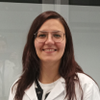
Alba Acevedo Fernández
PhD in Chemical Engineering from the University of Bath (UK). Alba specialised in photocatalytic reactors and is currently working as a senior researcher in the development of hydrogen technologies.
LinkedIn: Alba Acevedo Fernández
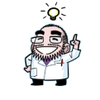
Jesús Rodríguez Ruiz
Jesús works as a researcher at National Hydrogen and Fuel Cell Technology Testing Centre (CNH2). His researcher activities revolve around low-temperature electrolysis and bioelectrochemical systems. Jesús also gives seminars and lectures on Hydrogen Technologies.
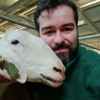
Pablo G. Toral
Pablo is a researcher at the Mountain Livestock Institute (CSIC-University of Leon). He was the coordinator of the outreach project “Scientific school calendar”.
Twitter: @CalCientifico
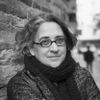
Teresa Samper-Gras
Teresa has a degree in Sociology and Political Science (UAB), a postgraduate degree in Scientific Communication (UPF) and a PhD in Philosophy of Science and Gender Studies (UV). Her research revolves around the relationship between science and gender.
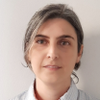
Carmen Loreto Manuelian Fuste
DVM, PhD in Animal Production from the Universitat Autònoma de Barcelona (Spain). Carmen specialized in dairy ruminants and infrared spectroscopy and is currently working as a Maria Zambrano senior researcher in the development of infrared spectroscopy prediction models for animal-derived products.
LinkedIn: Carmen L. Manuelian
ResearchGate: Carmen L. Manuelian
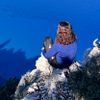
Lorenza Piroddi
Graduate in Chemical and Process Engineering at University of Bologna, Now working as a researcher at Sotacarbo, sustainable energy research center.
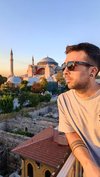
Luis Fernando Serrano
Graduate in Higher Technician in Kitchen Management and Energy Efficiency and Solar Thermal Energy. Official Certificate of Pedagogical and Didactic Training from the Alfonso X El Sabio University.
